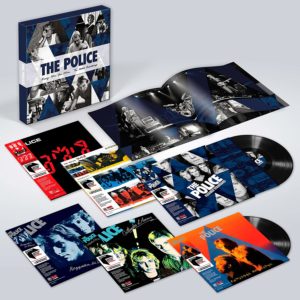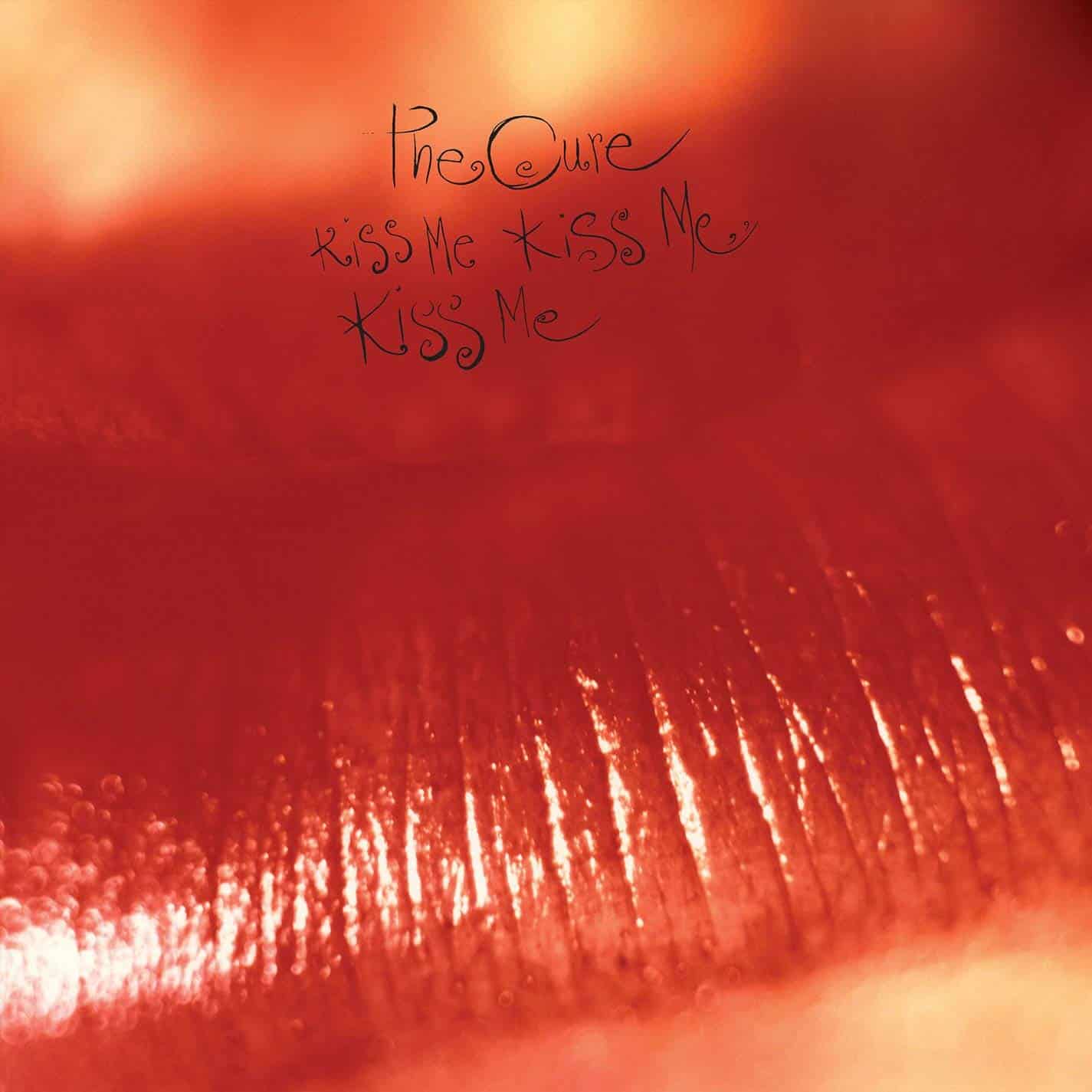Marketplace
2018 A&M Records PRESSING
- Catalog Number 676 325-0
- Release Year 2018
- Vinyl Mastering Engineer Miles Showell
- Pressing Weight 180g
- # of Disks 6
- Box Set Yes
- Jacket Style Other
- Pressing Plant Optimal Media
- 1/2 Speed Mastered Yes
The music on Every Move You Make: The Studio Recordings forms a complex tapestry of jazz, prog rock, and reggae held together by world-class musicianship and some of the most distinctive pop melodies of the past 40 years. While the Police’s success can still be measured in massive album sales, the overall improvement in sound quality to the group’s records offered by the LPs in this box set provides a clearer picture of each member’s contributions and underlines why the band remains unique.
When Outlandos D’Amour appeared in 1978, the London rock scene still felt the effects of the Sex Pistols’ punk rebellion. And while Police drummer Stewart Copeland was inspired by the movement’s energy, he and the rest of the group bristled at punk’s disdain for musical polish. Guitarist Andy Summers later admitted the band used the outward trappings of punk and a love of reggae to smuggle jazz into the Police’s repertoire. The tracks on Outlandos D’Amour show a group hinting at punk (“Next to You”), trying out new-wave/reggae fusion (“Can’t Stand Losing You”), and experimenting with tango and Broadway-style storytelling (“Roxanne”). On this reissue, Abbey Road’s Miles Showell rescues the music from the murkiness of the U.K. and U.S. first pressings. While Nigel Gray’s mix on the originals sounds muddy and homogenized, Showell’s half-speed remaster (from high-res digital) provides clearer soundstage dimensions and superior instrumental separation.
After the popularity of its debut, the Police returned to Gray’s Surrey Sound Studios to refine its fusion for Regatta de Blanc.The combination of Sting’s distinctive tenor, Copeland’s syncopation, and Summer’s shimmering chord structures resulted in the distinctive “Message in a Bottle,” a song that comes across as upbeat and brooding. Such juxtaposition of light and dark tonalities gets further demonstrated on “Walking on the Moon”—and quickly became a trademark of the Police’s approach. Showell’s remaster improves the overall sonics by reducing the grain and decreasing the fatiguing sensation of Summer’s decidedly metallic, sometimes piercing guitar notes.
While Copeland has stated the recording of Zenyatta Mondatta felt rushed, the album possesses the fullest and most resonant sound of the trio’s initial three releases. It also serves as a showcase for Sting’s instrumental prowess. His rolling bass lines, coupled with Copeland’s muscular precision, provide an addictive swing. Here, the sonic gap between the 1981 original pressings and Showell’s work narrows. Beginning with Zenyatta Mondatta, Nautilus Recordings began producing half-speed SuperDisc remasters of Police records—each handled by Bruce Leek and Richard Donaldson. The Nautilus edition sounds a bit brighter and more forward compared to Showell’s treatment. While both prove less grainy than the original U.S pressing, the notion of “best sounding” will likely come down to personal taste.
Ghost in the Machine introduces more keyboards, horns, and the ideas of philosopher Arthur Koestler into the Police’s music. The band’s dynamics also became less democratic, with the songs dominated by Sting’s vision. Co-produced by Hugh Padgham, famous for his pioneering of the 80s gated drum sound, Ghost in the Machine’s sounds very much of the era. On the 1981 Nautilus SuperDisc, instruments appear more forward in the mix compared to the Showell remaster. And while Showell’s approach may be more balanced, Sting’s bass lines feel more engaging on the SuperDisc.
The Police’s final album, Synchronicity, can be summed up by saying “side two.” Beginning with “Every Breath You Take” and continuing through “Murder by Numbers,” it stands as flawless stretch of pure pop song craft. Not to say “Synchronicity” and “Walking in Your Footsteps” are without their charms, but the remainder of side one feels forgettable. My Robert Ludwig cut of the 1985 original U.S. pressing has forever been ingrained in my memory, which might explain why I favor it over Showell’s version. While the latter sound less grainy, the Ludwig LP boasts an expansive immediacy.
The six LPs are pressed on ultra-flat, quiet vinyl at Germany’s Optimal Media. Flexible Strategies, the bonus recordin the set, collects uninspiring B-sides (“Someone to Talk To”) and sluggish remixes (“Truth Hits Everybody”) that don’t invite repeated listening. A large booklet of black-and-white band photographs arranged in a distracting, topsy-turvy triangular layout comes standard, as does an opaque nylon title sash that proves difficult to remove if you want to regularly use the textured, tip-on box. For the $199 ask price, the packaging and booklet fall short
Every Move You Make: The Studio Recordings


 4.5
4.5



